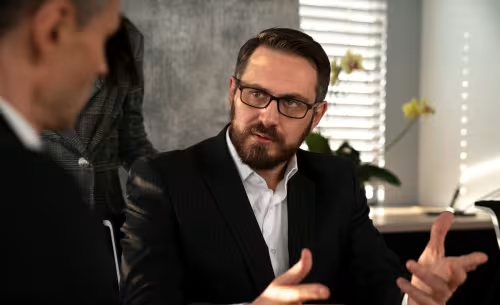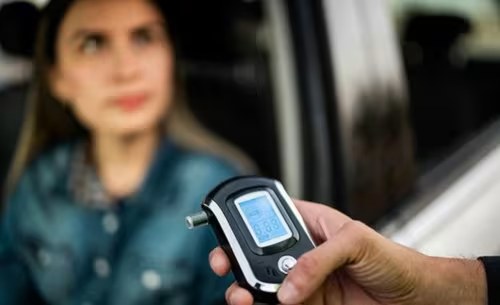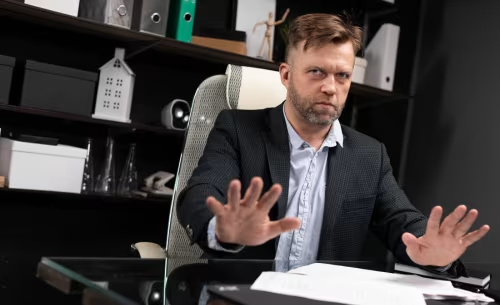Disclaimer: This guest post was written by a third party and is for informational purposes only. It does not constitute legal advice or create an attorney-client relationship with The Meehan Law Firm. For legal advice, please contact our office.
.webp)
.webp)
We have all heard of the “right to remain silent.” It is so important, that it is guaranteed under the 5th Amendment of the United States Constitution. In relevant part, the 5th Amendment says, “No person … shall be compelled in a criminal case to be a witness against himself.” This right is clear, yet people are constantly giving statements to the police.
Miranda Rights: What It Means and Why It Matters
Now, a client might tell me, “This case is a slam dunk, they never read me my Miranda Rights.” Your “Miranda Rights” refers to the police reminding a person in custody of their right to remain silent. If you have ever seen an episode of “Law and Order,” you likely heard an officer advise a person they arrested of their right to remain silent. The advisement will go something like this, “You have the right to remain silent, anything you say can and will be used against you in a court of law. You have the right to have an attorney present prior to and during any questioning. If you cannot afford an attorney, one will be appointed to represent you free of charge. Do you understand yourrights?” If the person says they understand their rights, then they have been properly advised. A skilled detective will then continue questioning the person.
Now, you may say, “wait, the officer never asked him if he wanted an attorney.”
That is true, they don’t have to. Asking the person if they want an attorney will likely result in them asking for an attorney, so they don’t ask. The person said they understood their rights, and if they continue answering questions, then they are effectively waiving the right to have an attorney present.
It is better to remain silent and be suspected of a crime, than to make a statement and become a defendant.
Your Miranda Warnings come from the 1966 Supreme Court Decision in Miranda vs. Arizona. In that case, Mr. Miranda, who had a long history of being in contact with law enforcement, was in police custody on a separate matter. He was taken to aninter view room and questioned about a kidnapping and a rape. He was interrogated by law enforcement for a couple of hours and confessed to the crime and then signed a written confession. He objected to the admission of his confession to the jury, but the trial court overruled that objection and allowed the statement to be admitted. He appealed the admission of his statements to the jury, and eventually, the Supreme Court held that the statement should not have been admitted, since Mr.Miranda was not advised of his constitutional right to remain silent, or his right to an attorney prior to any questioning. This case resulted in the term “Miranda Warnings,” for the advisement of rights prior to police questioning. Mr.Miranda had his guilty verdict overturned by the Supreme Court, but he was retried on the charges and was convicted without the admission of his statement.

When do the Miranda Warnings need to be given?
A suspect in custody must be advised of his rights (Miranda Warning) prior to any questioning by law enforcement. The key is that the person must be in custody for law enforcement to be obligated to give the suspect the Miranda Warnings.
One way that law enforcement avoids the necessity of giving the warning, is to question the person when they are not in custody. For example, they speak to the suspect on the telephone, or standing outside of their vehicle after being pulled over, or at the police station, but they tell the person, they are not under arrest, and they are free to leave any time. The key question that the person can ask is,are they free to leave? If the answer is “yes,” then you are not in custody, and they do not need to advise you of the right to remain silent.
Law enforcement will often try to interview the suspected person prior to arresting him/her,since they do not need to advise them of the right to remain silent.
The right to remain silent only works if you remain silent.
You have a right to remain silent, even if you are not reminded of that right. SHUT UP! If the police want to speak to you about something someone said you did, call a lawyer, do not make a statement to the police. Why? Because the police are allowed to lie to you to obtain a confession, but more importantly, if you do not make a statement, then the police may not be able to even put you at the location of the crime, so why help them? Talking your way out of a crime rarely happens. If you think that you are smarter than the police, and you can make a statement that will clear you, you will be wrong. The police have all the resources and the evidence that they are gathering against you, and you do not know what they already know, so your statement will often be used to fill in any gaps they have in their case, or maybe they can prove you lied, and they will use that against you at trial. Now, imagine if they had neither, then they have to prove the case without your assistance.
To be clear, if a person is advised of their right to remain silent, and continues answering questions later decides they no longer want to continue answering questions, they must unequivocally end the interview. “I want an attorney.” Is the best clear statement to stop speaking. You should understand that the statements you made prior to asking for an attorney will be admissible. Also, a less clear statement, such as,“Should I have an attorney?” is not a clear invocation of your rights.
If you tell law enforcement that you do not want to speak to them, that cannot be used against you. Think about what law enforcement can ask you or ask you to do, since both may be considered presenting evidence against yourself. For example, if suspected of a DUI in California, and law enforcement asks you to perform “Field Sobriety Tests” to "determine if you are safe to drive.” These tests will be considered evidence against you, if they are not performed perfectly. Don’t do them. Yourright to not be compelled to provide evidence against yourself, means you do not need to do these tests.
You should understand, that if you are arrested for a DUI, the California Department of Motor Vehicles policy is that you must complete the chemical test offered following your arrest, or you will lose your privilege to drive for a year or longer. The post arrest chemical test is the only test that refusing to complete will be used against you by the DMV.
Remember your Miranda Rights; when contacted by law enforcement about a potential crime, ask to speak with your attorney first.
It can’t hurt you but may be the best decision you ever made. The right to remain silent only works if you remain silent.
(844) 4-DUI STOP
Categories
Need Help?
Free Consultation, discreet, and no obligation- talk to an attorney.
More Blogs

How Can You Defend Someone Who Is Guilty?
Defense attorneys protect constitutional rights, ensure due process...
Read More..
Why a Second DUI Might Be Your Wake-Up Call
Facing a Second DUI in California: Why It Should Be Your Wake-Up Call..
Read More..
How To Spot a Bad DUI Lawyer in 10 Minutes or Less
Choosing the Right DUI Lawyer in California: Spotting Red Flags Early...
Read More..



